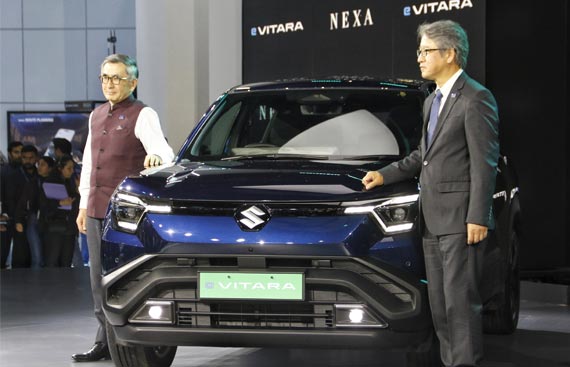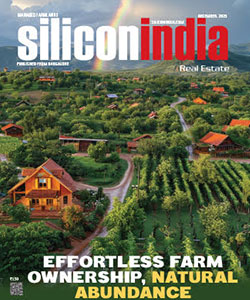Maruti Suzuki Denies Operational Disruption Amid Rare Earth Magnet Crisis
By
siliconindia | Thursday, 12 June 2025, 12:22:36 PM IST

- Maruti Suzuki confirms its operations remain unaffected by the rare earth magnet crisis, despite concerns over the e-Vitara EV launch.
- India faces supply risks as China tightens control over rare earth magnet exports, from which it sources over 80% of its needs.
- Strategic inventories, alternate sourcing, and long-term domestic capacity building are being pursued to mitigate risks.
Maruti Suzuki India dismissed concerns regarding any disruption to its operations due to the ongoing rare earth magnet crisis triggered by China’s recent export restrictions. The automaker confirmed it is closely monitoring the evolving situation but emphasized that its production remains unaffected for now.
Recent reports suggested that the company’s highly anticipated electric SUV, the e-Vitara slated for launch before the end of September might face production hurdles owing to China’s decision to tighten control over the export of rare earth elements, a critical component in EV manufacturing. However, a Maruti Suzuki spokesperson clarified, “As of now, there is no disruption in our operation due to this issue. There is a lot of uncertainty, and the situation is continuously evolving”.
The statement was made during the announcement of the Bharat NCAP safety ratings for Maruti’s Dzire compact sedan and Baleno premium hatchback. The company further noted that it is 'pursuing multiple solutions to ensure continuity' and will inform stakeholders if there is any material impact in the future, in compliance with regulatory norms.
Rare earth magnets are essential for electric vehicle powertrains, and China’s move to restrict exports has caused ripples across the global automotive sector. In April, the Chinese government mandated new licensing norms for the export of seven rare earth elements and finished magnets. The updated framework requires detailed end-use disclosures and a confirmation that the materials won’t be used in defense or re-exported to the U.S.
India, which imported over 80 percent of its 540 tonnes of rare earth magnets from China in the last fiscal year, is particularly vulnerable. Crisil Ratings warned that prolonged supply disruptions lasting more than a month could affect the timelines for EV launches, disrupt production schedules, and impede sectoral growth momentum.
To counter the emerging risks, the Indian government and domestic automakers are adopting a two-pronged approach. In the short term, efforts are being made to build strategic inventories, seek alternative sources, and ramp up local assembly under the Production Linked Incentive (PLI) schemes. Long-term strategies include accelerating rare earth mineral exploration, developing local production capacity, and investing in recycling infrastructure to reduce import dependency.
As supply concerns linger, the automotive sector remains cautiously optimistic, while strategizing to shield itself from future geopolitical shocks.
Read More News :
'Make in India' Unlocked India's Defence Potential: Bharat Forge Chairman
Bima Sugam Selects Protean eGov for Rs 100 Crore Digital Insurance Marketplace Project



